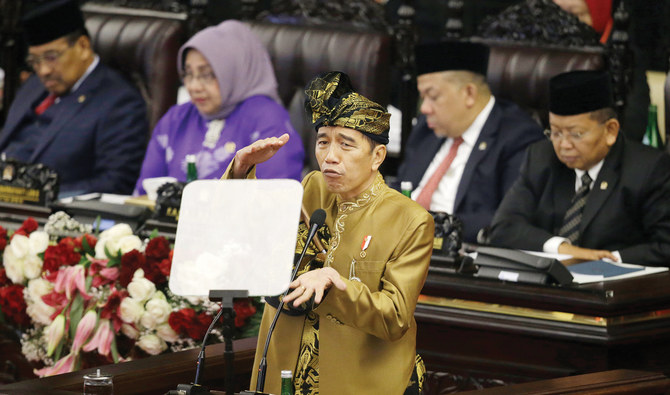Long before the historical visit of King Salman, Saudi Arabia was among the first countries in the world that acknowledged the independence of Indonesia. The following visit of the first President of Indonesia to the Kingdom and of King Faizal bin Abdul Aziz to Indonesia in 1970 signified this long-established relationship.
For most Indonesians, Saudi Arabia is a spiritual home where the Ka’bah and the Masjid Nabawi are located. Roughly 100,000 Indonesians arrive in the Kingdom every month, roaming around Jeddah, Makkah and Madinah visiting holy sites, not to mention the 230,000 annual Hajj visitors.
It is an annual exchange dating well beyond the formation of the two modern nations.
For over a millennia, there have been ties between Arab traders and people in Nusantara, the archipelago now called Indonesia, with the flow of people as constant as the flow of trade and culture.
Indonesia has one of the 10 largest global diasporas. Out of approximately 23 million Indonesians living abroad, with 400,000 currently residing in the Kingdom. Many Indonesians living in the country have gone on to take Saudi citizenship, as characterized by various family names hinting at Indonesian origins, such as Al-Banten, Al-Palemban, Al-Manduri, and Al-Banjari.
The huge number of Indonesian citizens and descendants in Saudi Arabia have strengthened relations between the two countries. Language, another bridge to cooperation and progress, is also highly valued by the two states. Since 2006, the Consulate General of Indonesia in Jeddah has initiated the Bahasa Indonesia Untuk Penutur Asing program (BIPA – Indonesian Language for Foreigners). So far, over a thousand Saudis have participated in it.
In tourism, the visit of King Salman to Indonesia in March 2017 left a very important imprint.
The so-called “King Salman Route,” the places where King Salman visited in Indonesia, has entered the lexicon of tourist operators, such is its popularity with Saudi and other foreign guests.
Spreading the concept of moderate Islam, as coined by Crown Prince Mohammed bin Salman, and the ideas of Islam Wasatiyyah in Indonesia, is also an area of shared objectives. Indonesia believes in “the Middle Way of Islam” of moderation in the practice of the Islamic faith, as a response to the spread of extremism.
Considering the vital role of the media in selecting, organizing and emphasizing the news, and how the media influences what we think about ourselves and other nations, I would like to propose a reciprocal visit between Indonesian and Saudi media outlets. Both parties can learn extensively from each other, and hopefully can bring something positive to
By 2030, Indonesia could have the world’s 7th largest economy according to the McKinsey report, and the 4th most powerful economy in the world by 2050, according to PricewaterhouseCooper. The door is always open to the Saudi people to set their footprints down here, and seize the business opportunities offered by Indonesia. The same invitation also goes to Indonesian entrepreneurs to take the opportunity provided by the Kingdom.
Along with the tremendous effort in diversifying its economy through Saudi Vision 2030, the Kingdom reinforces its activities to achieve a vibrant society, a thriving economy, and an ambitious nation.
I believe it now the time for us to cherish our strategic partnership.



























